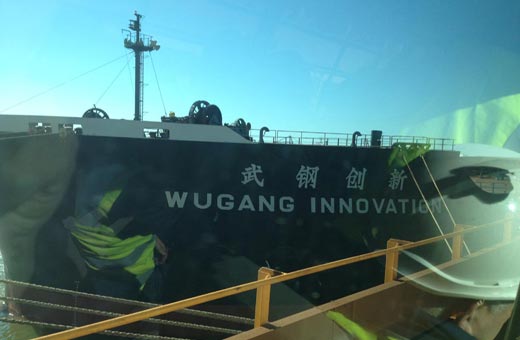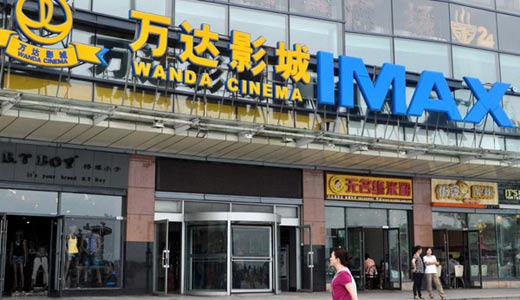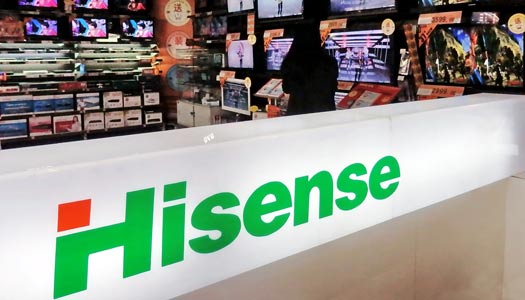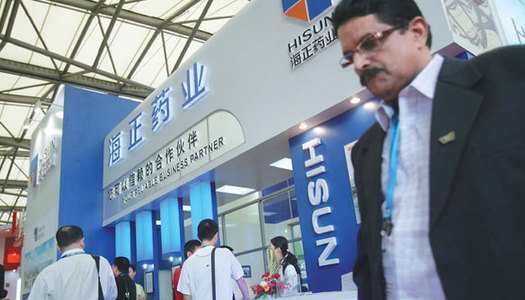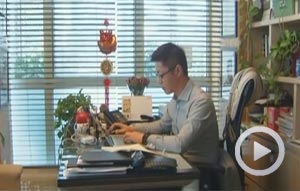
Firms help create jobs in US
Updated: 2012-10-09 08:59
Direct investment deals add 27,000 to payrolls in the country since 2000
Although US politicians often raise fears about Chinese investment stealing US jobs and posing threats to national security, analysts paint a very different picture.
|
 |
|
People line up to meet the Los Angeles Lakers star Robery Horry (right) at the Haier stand at 2012 International CES, a consumer electronics trade show in Las Vegas, Nevada. The Chinese appliance maker has hired 350 people in its South Carolina plant. [Photo/China Daily] |

The latest report released by New York-based Rhodium Group shows that the 600 Chinese direct investment transactions made between 2000 and 2012 support 27,000 jobs in the United States today, compared with 10,000 jobs five years ago.
The companies in the study are all US subsidiaries with Chinese majority ownership. They do not include those in which Chinese hold a minority interest - which account for $8 billion, or 40 percent of Chinese investment in the US during the 12 years - or indirect job creation related to the construction of factories or at suppliers. For example, Tianjin Pipe Corp's new steel plant in Texas is estimated to employ up to 2,000 construction workers.
The study on the employment impact of Chinese FDI in the US also finds that more than $3.5 billion worth of greenfield investment, or investment in new facilities, since 2000 has created 8,000 US jobs.
Major job creators include auto parts maker Wanxiang, which employs 6,000 Americans, mostly in Illinois; appliance maker Haier hiring 350 in South Carolina; telecom equipment firm Huawei with 1,500 in California, Texas and New Jersey; and Sany, which runs a facility in Georgia employing more than 130 people.
Admitting that the impact on US jobs of mergers and acquisitions is less clear, the study finds that the 170 transactions in which Chinese investors have majority control of US firms were "overwhelmingly positive".
"We see no evidence of asset-stripping behavior and find that most Chinese parent firms have maintained or added staff after acquiring companies in the US," wrote Thilo Hanemann, research director of Rhodium Group, and Adam Lysenko, research analyst at Rhodium.
Compared with previous owners, Chinese investors were able to inject capital to maintain expenditure in times of crisis, bring better access to the fast-growing Chinese market and create synergies with existing operations in China that increased the value of US assets.
Even the few acquisitions that have resulted in job losses have not been subject to asset stripping by Chinese companies, but rather structural adjustment and reorganization of value chains to react to changes in costs or demand, according to the report.
Although the 27,000 jobs associated with Chinese investment now make up less than 1 percent of the 6 million jobs created by US-based foreign affiliates, the report emphasized that the potential is huge, given that Chinese FDI is expected to increase dramatically in the coming decade.
It projects that if the US can attract between $150 billion of Chinese global outbound investment by 2020, there will be 300,000 Americans on the payroll of Chinese US affiliates. Rhodium expects total Chinese outbound investment to hit $1 trillion by 2020.
The report, however, noted that such a result is not guaranteed. Chinese companies will only continue to invest in the US if the US manages to sustain its attractiveness to foreign investors by fixing its structural problems.
"If fear mongering and populism gain the upper hand, Chinese firms may choose more hospitable investment destinations in Europe or Asia to expand their overseas business and generate jobs there," the report said.
The report also called for improved corporate governance and transparency on the part of Chinese investors and less Chinese government involvement in overseas investment decisions.
Both Hanemann and Dan Rosen, a partner at Rhodium Group, do not believe that US President Barack Obama's recent executive order requiring Ralls Corp, owned by executives of China's Sany Group, to abandon a wind farm project near a military base in Oregon and divest all related assets is politically motivated or signals a more restrictive US policy toward Chinese investment.
But Edward Alden, a senior fellow at the Council on Foreign Relations, described Obama's decision as sending the wrong message.
Saying Obama was the first president in 22 years to issue a formal order blocking foreign investment into the US on national security grounds, Alden said the decision will unfortunately be seen as yet another signal - this time from the highest possible level - that the US does not really want Chinese investment.
"And for an economy still struggling to create jobs, that's the wrong signal to send," Alden said.
He said the Obama administration had handled the case "abysmally".
"If the location of the wind farm did indeed pose real security concerns, the US government should have worked quietly with the company to help it find a reasonable way to divest," he said. "By forcing a presidential action, it becomes a big, public slapdown to another Chinese company. That is not in the economic interest of the US that needs all the foreign investment it can get."
Joel Backaler, director of the Frontier Strategy Group in Washington, said that Obama's motivation may have been to help his presidential campaign. "Cracking down on China" is a spotlight issue for both Democratic and Republican parties.
"If future investment decisions by Chinese companies meet similar resistance, though, the end result of such decisions will hinder, not help the US economic recovery," Backaler wrote in the Bloomberg Businessweek magazine.
chenweihua@chinadaily.com.cn
- BYD exports three electric cars to Thailand
- Grid gets first jolt of residential solar power
- US now largest buyer of China's exports
- China's outbound M&As on the rise
- Tobacco control may entail price, tax rises
- Quanzhou becomes pilot financial reform zone
- New automobiles shine at Geneva Motor Show
- World's longest high-speed rail 'on track'
- Jiugui Liquor involved in plasticizer scandal again
- Accident reignites school bus safety concerns
- China to revise labor law
- Trademark registration under scrutiny
- Dinner ban takes toll on liquor firms
- CIC tables bid for London's Chiswick Park
- Property buyers eye overseas market
- Call for law to protect personal information
- China to cut train ticket prices
- Christmas business
- Solar industry to get jolt from new policies
- KFC chicken under spotlight



